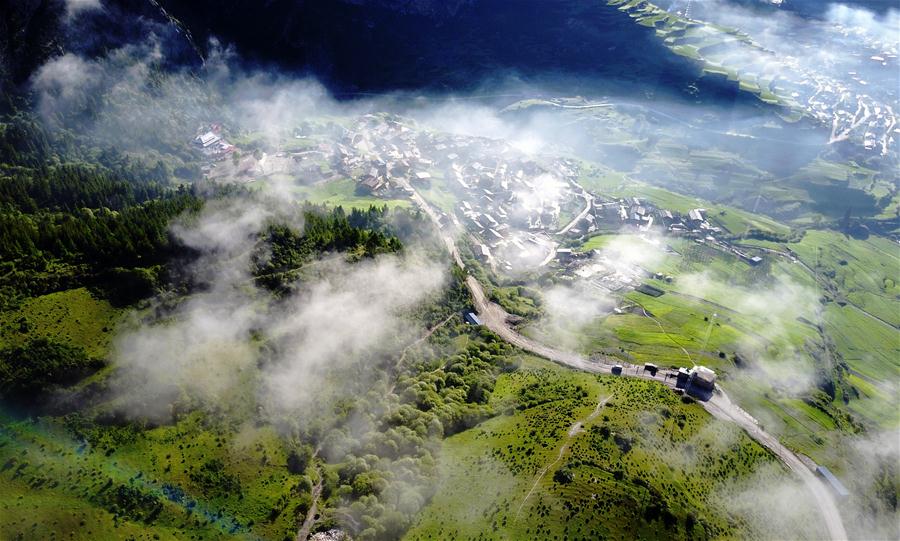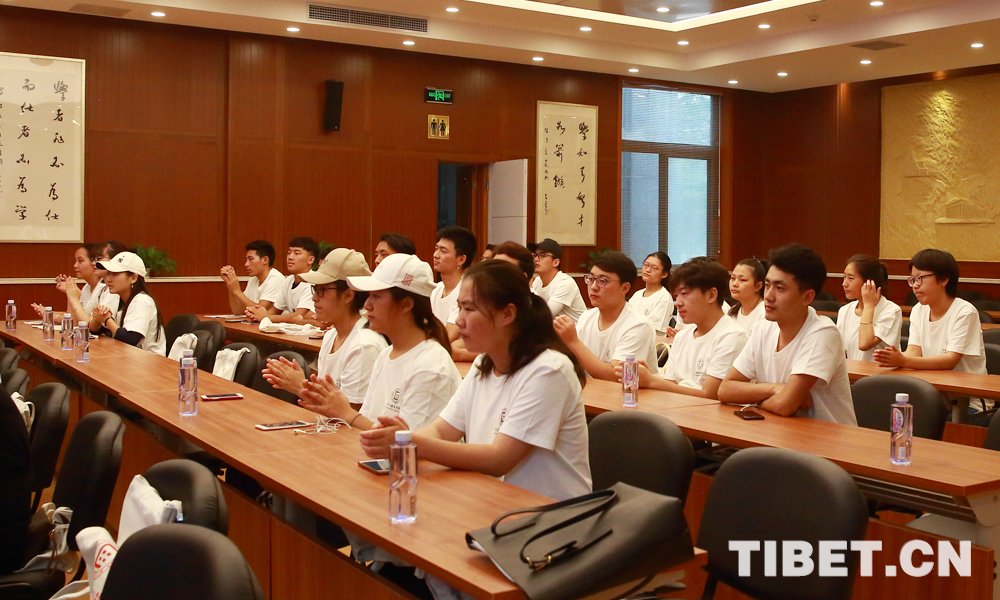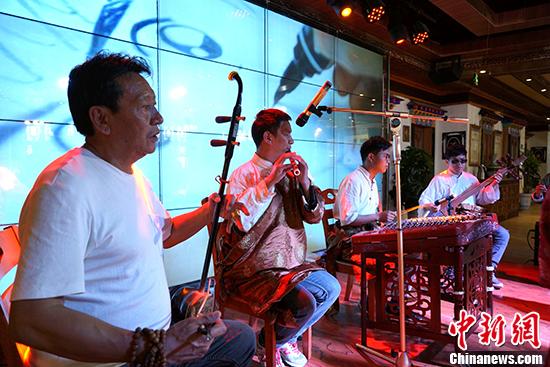Entrepreneur builds bright future for Himalayan home
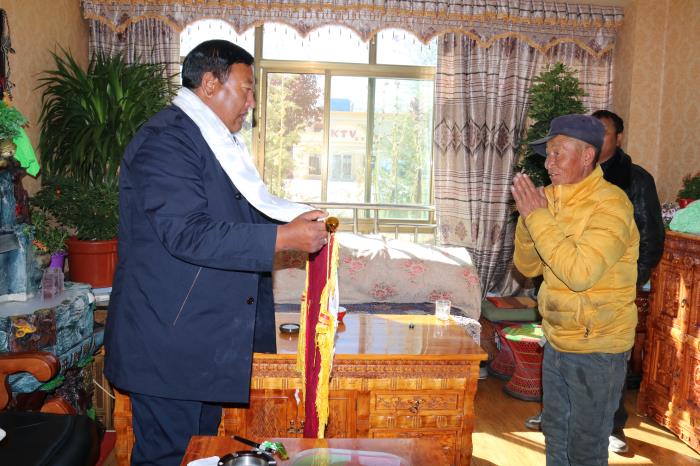
Dak Padruk receives hada, a ceremonial silk scarf, offered by a villager whom he helped at Drago village in Lhunze county, Tibet autonomous region. [Photo/China Daily]
Most people in the Tibet autonomous region's Lhunze county know "Dak" Padruk; not just because he is a successful businessman, but for his warmheartedness and generosity.
He has helped many people in Drago village live a better life.
The village, where Padruk was born in 1966, sits at the southern foot of the Himalayas, where steep slopes and rugged paths make access difficult. The villagers are farmers living in remote valleys.
His family was poor when he was a child. After finishing junior middle school, he began to find part-time jobs. For years, he worked as a porter and shop assistant in Lhasa, the regional capital, and Shigatse.
"Working for other people couldn't make me much money or benefit others, so I set up a small farming construction company in Drago in 1997 with some other villagers," Padruk said.
He was renowned for working hard when he was a young man, leading villagers to nickname him Dak — Tibetan for tiger — which means "a man who works like a tiger".
The construction company grew over the decades. When it started it had just over 30 employees, but today it has 650.
Padruk now owns three companies: in construction, vegetable farming and vegetable sales. He employs 180 people from 60 households in Drago, which has a total population of 597. The average salary of Padruk's employees is above 3,500 yuan ($540).
Workers from 25 of the village's most impoverished families have stable jobs in his companies, with salaries between 3,000 and 4,000 yuan.
"I also allow villagers working in my companies to do their farming work when required, so they don't need to worry about it," he said.
Your Comment
Name E-mailRelated News
-
-
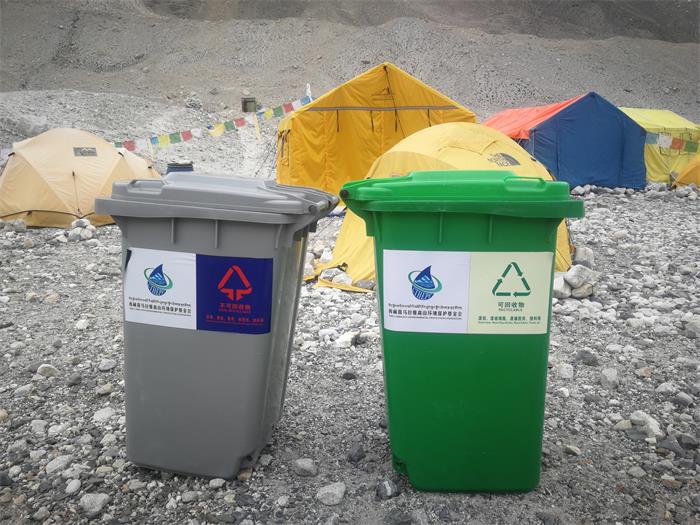
-
Cleanup after sloppy mountaineers a must
The Tibet autonomous region is taking steps to protect the environment of its mountaineering destinations.
-
-
-
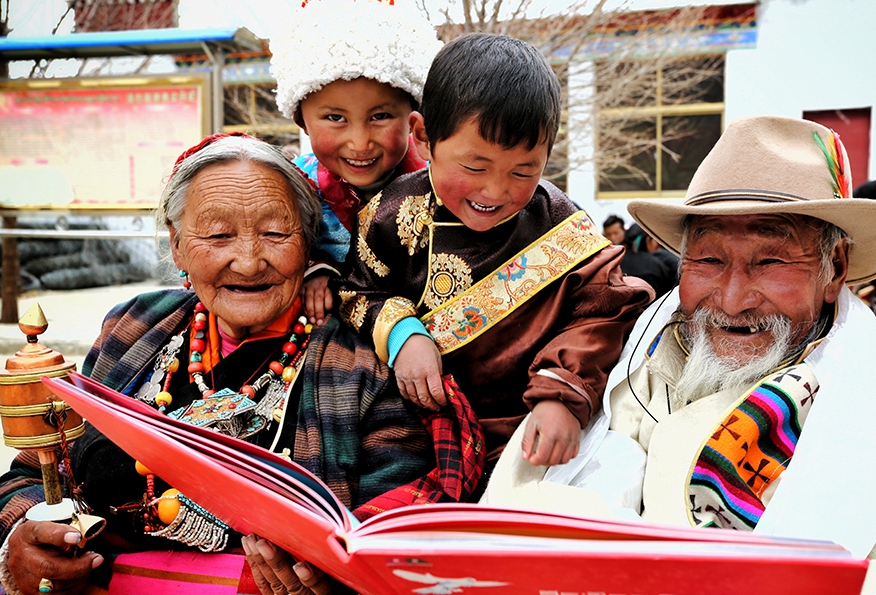
-
Healthcare accessible high upon the plateau
Residents of the Tibet autonomous region can now enjoy comprehensive medical services at local hospitals accredited as top-class healthcare institutions in China.
-
-
-
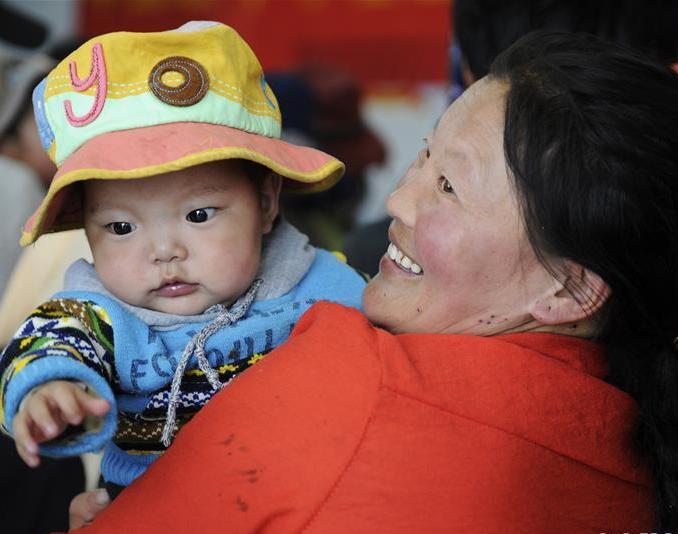
-
Screening for congenital heart disease comes to Tibet
On July 11th, "The Angel's Tour: Screening for Congenital Heart Disease for Impoverished Children in Tibet" formally launched.
-
-
-
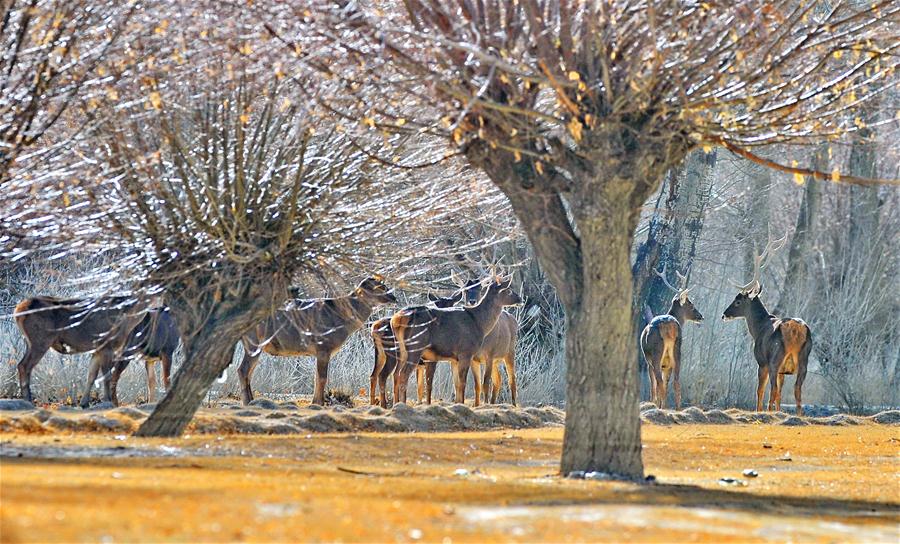
-
Tibet compensates residents for damage caused by wild animals
Tibet Autonomous Region, a natural habitat for many species of wildlife in southwest China, has spent 730 million yuan (109 million U.S. dollars) to compensate residents for damage caused by wild animals.
-
-
-

-
Historical Tibetan-language works to go digital
Ten Chinese higher-learning institutes have jointly launched a project to digitize historical Tibetan-language documents in Lhasa, capital of southwest China's Tibet Autonomous Region.
-



